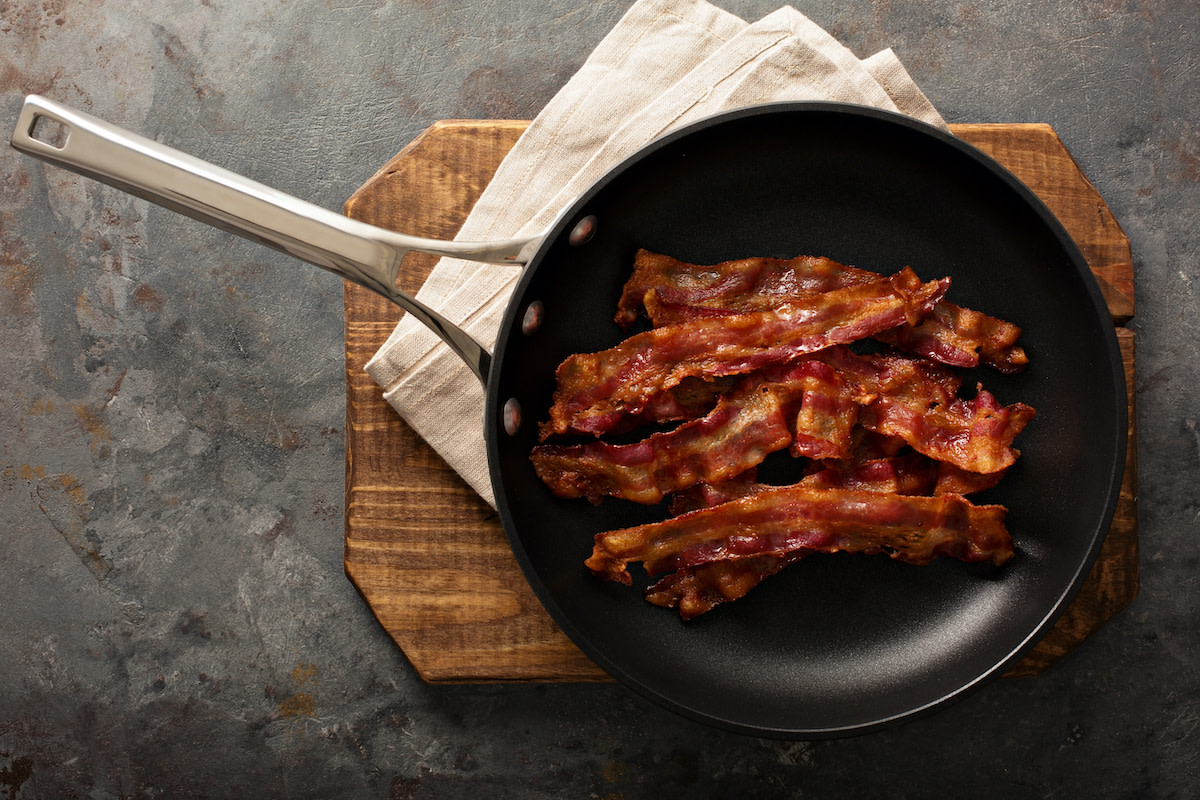Cured vs. Uncured Bacon: What’s the Difference?
Written by MasterClass
Last updated: Aug 31, 2021 • 1 min read
Cured bacon and uncured bacon are both preserved pork belly, but the preservation processes use different ingredients.
Learn From the Best
What Is Cured Bacon?
Cured bacon is pork belly preserved with salt and artificial chemical additives, particularly nitrates and nitrites, such as sodium nitrate and sodium nitrite. The curing process turns pork belly into bacon. Curing is a way to preserve meat, extend its shelf life, and prevent spoilage, bacterial growth, and botulism. Nitrates act as a preservative and give the bacon its pink color.
What Is Uncured Bacon?
Contrary to its name, uncured bacon is cured—but without using artificial nitrates. Instead, the curing process involves celery powder or sea salt, which contain naturally occurring nitrates. The labeling on uncured bacon in grocery stores will sometimes say, "No nitrates or nitrites added," but pork belly needs nitrates and other curing agents to turn into bacon.
Cured vs. Uncured Bacon: What’s the Difference?
Cured and uncured bacon are both cured meats, but different ingredients preserve the pork. Cured bacon uses artificial nitrates, while uncured bacon uses natural nitrates. Uncured bacon can be saltier than cured bacon. The pork belly in uncured bacon sits in salt brine for longer during the curing process since artificial nitrates cure the pork belly faster. Generally, cured and uncured bacon taste the same unless the brine has additional flavorings, such as liquid smoke, hickory, or applewood.
Want to Learn More About Cooking?
Become a better chef with the MasterClass Annual Membership. Gain access to exclusive video lessons taught by the world’s best, including Gordon Ramsay, Gabriela Cámara, Chef Thomas Keller, Dominique Ansel, Yotam Ottolenghi, Alice Waters, and more.
